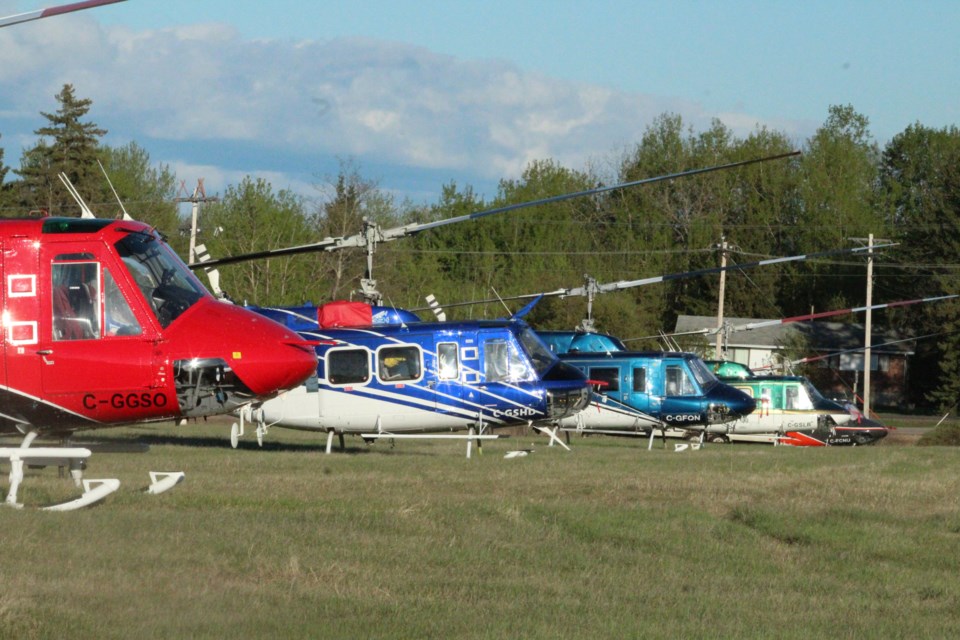LAC LA BICHE - Oct. 31 marked the official end of the 2021 Alberta forest fire season, but across the Lac La Biche Forest Area, officials say there is no seasonal end to forest fire awareness.
"The risk of a wildfire doesn’t end when wildfire season does," says Alberta Wildfire spokesperson Josee St-Onge. "Any time there is a fire on the land, there is a risk that it can spread."
In the Lac La Biche Forest Area, a wide-reaching tract of boreal forest stretching from north of Athabasca to Cold Lake, this year's fire season brought more fires, but less damage than previous years.
Over the wildfire season that spans from March 1 to October 31, the Lac La Biche Forest experienced 213 wildfires — a higher than average number, said St-Onge — but one that resulted in less damage than in previous years.
"Crews were able to contain the vast majority of these wildfires at a very small size, resulting in only 1,480 hectares burned in the Forest Area," she said, crediting fire crews and contractors for their hard work.
Provincially, the wildfire season generated 1,300 blazes across the provinces 10 Forest Protection Areas, burning just under 53,000 hectares. While the overall provincial numbers are lower than historical averages — the annual destruction in each of the last five years is 317,000 hectares — St-Onge says that even as winter approaches, caution is still urged, especially across the Lakeland area.
"It is especially important to exercise caution for winter burning in the Lac La Biche Forest Area this winter due to the exceptionally dry fall conditions we are currently experiencing," she said. "It is critical to fully extinguish all winter burns so that fire does not smoulder underground."
Hold-over fires
Fire permits are not required for burning in any of the province's 10 Forest Protection Areas after the end of wildfire season, but officials say it is important to continue using safe burning practices.
"We ask that people planning a burn project follow Alberta Wildfire’s guidelines on safe winter burning to help prevent wildfires," she said. "Fall and winter burns that are not properly extinguished can smoulder underground for months and re-ignite as wildfires in the spring."
Along with industrial or farmland burns, hunters and late-season recreational visitors are also urged to completely extinguish all campfires, which can also start wildfires if left to burn.
Human ignition
While awareness of forest fires was highlighted this year with large fires in British Columbia, Saskatchewan and the western United States, destroying and disrupting communities, St-Onge says the public still needs to be reminded of the dangers.
"During the 2021 wildfire season, 73 per cent of wildfires in the Lac La Biche Forest Area were human-caused," she said, comparing the region's number to the province's overall average of 62 per cent.
The higher percentage in the Lakeland area could be attributed to one person, however. A Glendon-area woman was charged by RCMP in June with 32 counts of arson after a string of forest blazes were reported through April, May and June of 2021. Her next court date is scheduled for Nov. 23, in Bonnyville Provincial Court.
RELATED — Glendon woman charged in arson-related forest fires
While there were a lot of statistical reports highlighting the challenges of the most recent wildfire season, St-Onge said on statistical standout for the season was the almost 500 Alberta firefighters and support staff who assisted other jurisdictions across Canada and the U.S.
"Thanks to a manageable wildfire situation at home, we were able to support other provinces like BC and Ontario, and even send help to the U.S. We sent 492 firefighters and support staff, as well as air tankers and equipment to eight jurisdictions," St-Onge said.
As of November 5, there were still 15 forest fires burning in Alberta's forest areas. None of the 15 are in the Lac La Biche Forest. All of the fires are reported to be under control.



